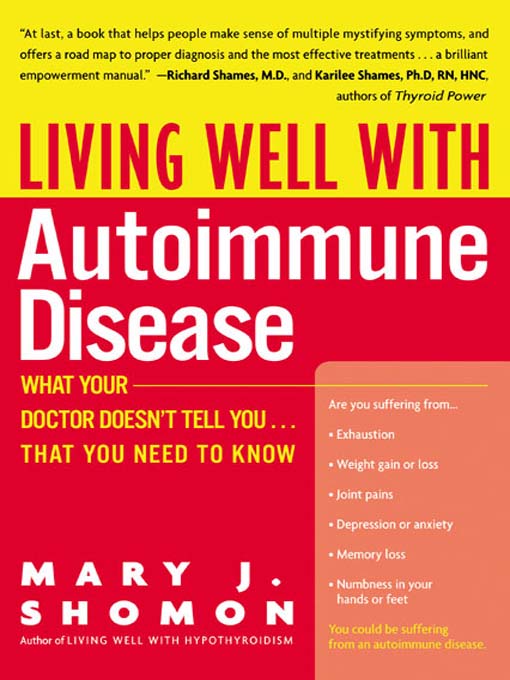A complete guide to understanding the mysterious and often difficult-to-pinpoint disorders of the immune system—and finding the keys to diagnosis, treatment, and recovery.
An estimated fifty million people suffer from symptoms including fatigue, joint pains, depression, or heart palpitations — signs that the immune system has turned on itself, causing conditions such as thyroid disease, hepatitis, or multiple sclerosis. And while doctors may prescribe treatments to relieve these surface ailments, when asked about the life-long health implications of an autoimmune condition, they often just shrug their shoulders. Yet much like cancer, having one autoimmune disease puts you at high risk for developing another, and understanding the underlying immune process can reverse a patients approach to a dysfunction—for the author, it changed the way she ate, the vitamins and supplements she took, and the types of doctors she visited. Living Well with Autoimmune Disease is the first book that goes beyond the conventional treatments by showing you how to work on your underlying autoimmune dysfunction with natural and alternative therapies.


